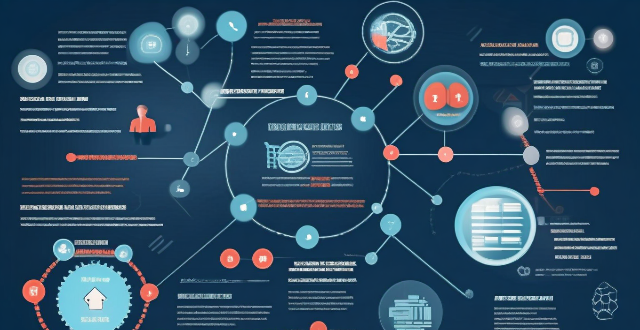Solve Math

What resources are available to help me practice and master math problem-solving ?
To master math problem-solving, various resources are available, including online platforms like Khan Academy and Mathway, books such as "How to Solve It" by Polya, and video tutorials from YouTube channels like Numberphile. Practice worksheets from websites like Math Drills and IXL Math can also aid in skill development. Regular and consistent use of these resources can enhance one's ability to solve complex math problems and build a strong mathematical foundation.

Is it necessary to have a strong math background to learn programming effectively ?
Is it necessary to have a strong math background to learn programming effectively? Programming is a complex field that involves various skills and knowledge. One of the most common questions asked by beginners is whether having a strong math background is necessary for effective learning of programming. In this article, we will explore this question in detail. Mathematics plays a crucial role in programming, especially in areas such as data analysis, machine learning, and game development. However, it is not absolutely necessary for all types of programming. For example, if you are developing simple web applications or writing scripts to automate tasks, a strong math background may not be required. If you plan to work in fields like data science or game development, then having a good understanding of mathematics can be very beneficial. If you feel that your math skills are lacking, there are several ways to improve them through online courses, reading books, practicing problem solving, and joining study groups. With dedication and effort, anyone can improve their math skills and become an effective programmer.

How do I approach complex math problems and find solutions ?
When facing complex math problems, it's essential to have a systematic approach that helps you break down the problem into manageable parts. Here's a structured way to tackle such challenges: 1. Understand the Problem: Read the problem carefully and identify key information and variables. Clarify any doubts or ambiguities before proceeding. 2. Plan Your Approach: Select an appropriate strategy based on the type of problem (algebraic, geometric, etc.). Outline the steps you will take to solve the problem and estimate the difficulty and time required for each step. 3. Execute Your Plan: Start with the first step of your plan, work through each step methodically, making sure each calculation is correct. Use scratch paper to keep your work organized. 4. Review Your Work: Re-read the original problem to ensure your solution addresses what was asked. Verify your answer makes sense in the context of the problem and double-check your calculations for accuracy. 5. Seek Help if Needed: If you are stuck, try approaching the problem from a different angle. Discuss the problem with peers or a teacher to get new insights. Utilize online resources or textbooks for additional explanations and examples.

How can I develop better number sense and estimation skills for problem-solving ?
Number sense is a crucial skill for effective problem-solving, involving an intuitive understanding of numbers and their relationships. It's important for efficiency, flexibility, and confidence in handling numerical tasks. To improve your number sense and estimation skills, practice rounding and estimating, use benchmark numbers, work with different representations, engage in mental math exercises, analyze mistakes, and seek out challenging problems. Consistent practice and real-world applications are key to developing a more intuitive understanding of numbers and enhancing problem-solving abilities.

What are some innovative approaches to incorporating physical activity into daily classroom routines ?
Incorporating physical activity into daily classroom routines is essential for student development. Brain breaks, movement stations, active learning games, outdoor experiences, and mindful moments are effective ways to promote physical health, cognitive abilities, social skills, and emotional well-being. Examples include stretching exercises, dance parties, yoga poses, math hoops, word cones, chair yoga, scavenger hunts, Jeopardy! relay races, spelling jump rope, nature walks, field trips, outdoor classrooms, breathing exercises, body scan meditations, and gratitude journaling.

How can blockchain solve the issue of supply chain management ?
Blockchain technology can revolutionize supply chain management by addressing various challenges faced by businesses. It improves visibility and traceability, reduces paperwork and manual processes, streamlines payment processes, enhances data security, and builds trust among stakeholders. With its potential to solve many of the issues faced by businesses in supply chain management, blockchain is an ideal solution for modern supply chains.

Can you provide tips on how to solve probability and statistics questions ?
To solve probability and statistics questions, one should understand basic concepts, identify the type of problem, use appropriate formulas, practice with examples, and check work for errors.

Can network expansion solve issues related to network congestion ?
## Topic Summary: Network Expansion as a Solution to Network Congestion Network congestion is a common problem that affects the performance of networks, leading to delays and reduced efficiency. One potential solution to this issue is network expansion, which involves increasing the capacity of the existing infrastructure by adding more hardware or upgrading existing equipment. This approach can alleviate network congestion by providing additional bandwidth for data transmission, improving overall performance, and reducing latency. However, network expansion also has its drawbacks, including high costs and the need for careful planning and implementation. Additionally, addressing the underlying causes of congestion is crucial for long-term success.

How do home teaching strategies impact a child's academic performance ?
Home teaching strategies refer to the methods and techniques parents use to support their children's learning outside of school. These strategies can have a significant impact on a child's academic performance, as they provide additional opportunities for learning and help reinforce concepts taught in the classroom. In this response, we will explore the various home teaching strategies and how they influence a child's academic success. Parents play a crucial role in encouraging and motivating their children to learn. By showing interest in their child's education and expressing positive expectations, parents can help build their child's confidence and self-esteem. This, in turn, can lead to increased engagement in learning activities and better academic performance. Parents should set clear goals and expectations for their children's academic achievement. This helps children understand the importance of education and provides them with a sense of direction. When parents establish high but realistic expectations, children are more likely to strive for excellence and achieve better results. Creating a supportive learning environment at home is essential for fostering academic success. Parents should ensure that their children have a quiet, well-lit space for studying, as well as access to necessary resources such as books, computers, and educational software. Additionally, parents should establish regular study routines and minimize distractions during designated study times. Reading aloud to children is an effective way to improve their vocabulary, comprehension skills, and overall literacy development. Parents should make reading a daily habit, selecting age-appropriate books that align with their child's interests and reading level. Writing is an essential skill that requires consistent practice to develop. Parents can encourage their children to write by providing them with opportunities to express themselves through journaling, storytelling, or letter writing. Providing feedback on their writing efforts can also help children improve their writing skills over time. Mathematics is a subject that benefits from regular practice and exposure to new concepts. Parents can support their child's mathematical development by providing them with challenging problems and puzzles to solve. This not only helps reinforce math skills learned in school but also promotes critical thinking and problem-solving abilities. Inquiry-based learning involves allowing children to explore topics of interest through hands-on experiences and investigation. Parents can support this type of learning by providing resources such as science kits, nature exploration guides, or access to online resources that allow children to engage in inquiry-based activities. Home teaching strategies have a significant impact on a child's academic performance. By involving themselves in their child's education, setting goals and expectations, and providing a supportive learning environment, parents can help their children achieve academic success. Additionally, employing effective home teaching strategies such as reading aloud, encouraging writing practice, providing mathematical challenges, and promoting inquiry-based learning can further enhance a child's academic development.